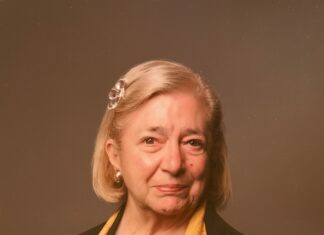NEW YORK — Raymond Vahan Damadian, MD, died on August 3. He was 86.
Dr. Damadian was a member of the Armenian American Healthcare Providers Organization (AAHPO), physician, medical practitioner, and inventor of the first MR (magnetic resonance) scanning machine, a method now well known as magnetic resonance imaging (MRI). Dr. Damadian was a distinguished speaker at the Armenian Medical World Congress in New York in 2009, hosted by AAHPO.
Damadian was born on March 16, 1936 in New York City to Vahan and Odette (Yazedjian) Damadian. He earned his bachelor’s degree in mathematics from the University of Wisconsin–Madison in 1956, and an M.D. degree from the Albert Einstein College of Medicine in New York City in 1960.
A multi-talented individual, he studied the violin at Juilliard for 8 years, and played in Junior Davis Cup tennis competitions. Dr. Damadian met his future wife, Donna Terry, while he had a job as a tennis coach. The two married a year after he finished medical school, and they had three children.
Raymond said that he first became interested in detecting cancer when, as a boy of 10, he saw his maternal grandmother, with whom he was very close, die painfully of breast cancer.
Damadian’s research into sodium and potassium in living cells led him to his first experiments with nuclear magnetic resonance (NMR) which caused him to first propose the MR body scanner in 1969. Damadian discovered that tumors and normal tissue can be distinguished in vivo by nuclear magnetic resonance (NMR) because of their prolonged relaxation times. Dr. Damadian was the first to perform a full-body scan of a human being in 1977 to diagnose cancer. He invented an apparatus and method to use NMR safely and accurately to scan the human body.








